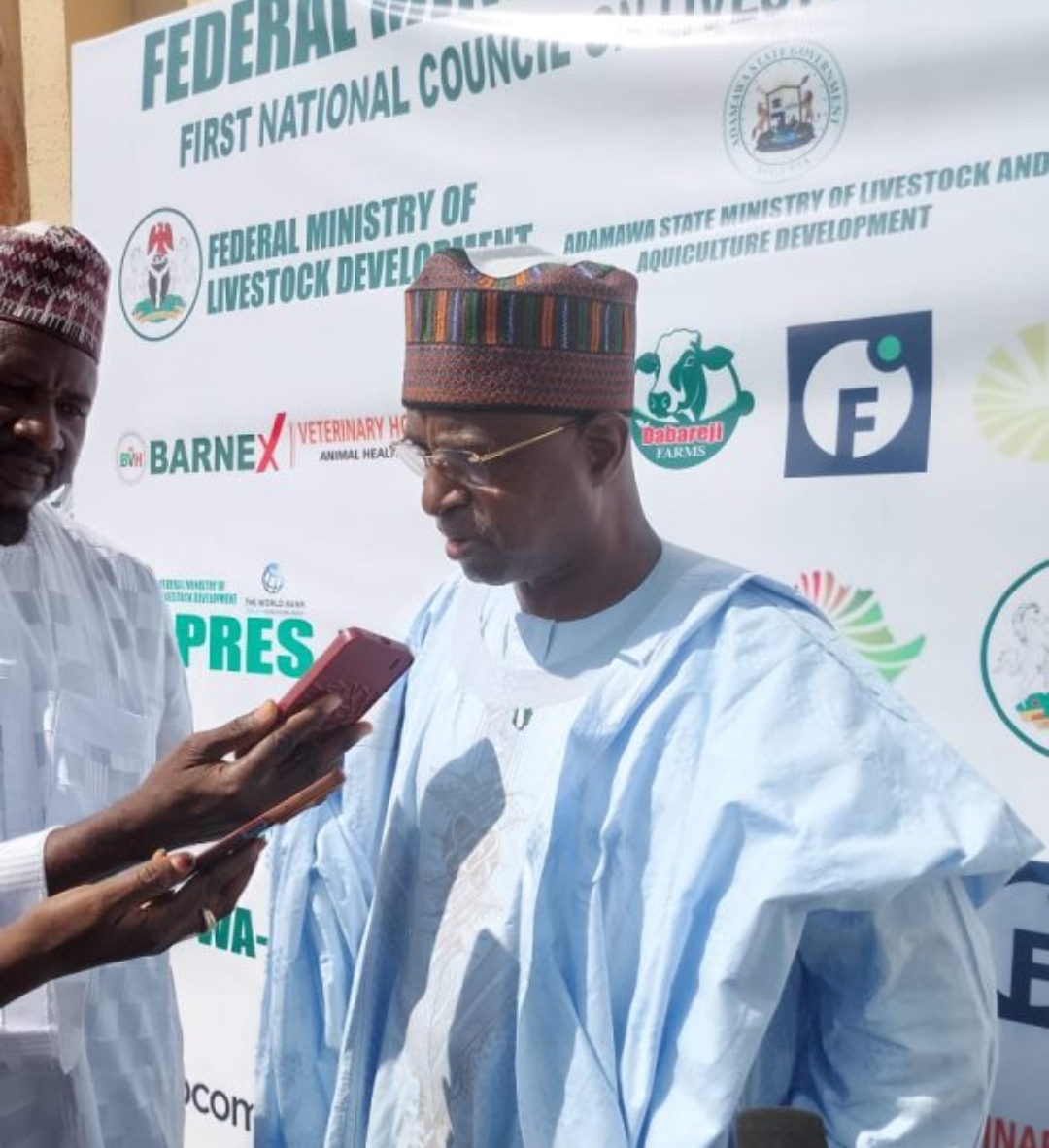YOLA, Adamawa State – The Federal Government has officially abolished open grazing of cattle across Nigeria, declaring the centuries-old practice illegal and mandating a full transition to modern ranching systems.
The landmark announcement was made by the Minister of Livestock Development, Mallam Idi Muktar Maiha, during the inaugural National Council on Livestock Development in Yola on Tuesday.
“Open grazing has caused unnecessary hiccups in the past years, creating crisis and loss of needless lives across the country,” Minister Maiha stated, emphasizing that “it is an offence to be caught grazing openly.”
The policy shift represents the most significant reform in Nigeria’s livestock sector in decades and aims to resolve persistent conflicts between herders and farmers that have claimed thousands of lives and displaced communities across the country.
Minister Maiha positioned the livestock sector as Nigeria’s next major economic engine, revealing ambitious revenue projections. “The ministry is projected to earn $74 billion in the next five years,” he announced, noting that “so far more than $14 billion have been earned” since the presidential initiative to revamp livestock production began.
The policy received broad political support during the council meeting. Senate Committee Chairman on Livestock, Senator Musa Mustapha, predicted that “soon livestock would overtake oil in revenue earning,” while House of Representatives Committee Chairman Hon. Tasir Olawale Raji commended the ministry for abolishing “needless confusion” between farmers and herders.
Adamawa State Governor Ahmadu Umar Fintiri, represented by Deputy Governor Professor Farauta George, welcomed the council to what he described as “the home of livestock,” endorsing the federal government’s reform agenda.
The Permanent Secretary of the Livestock Ministry, Dr. Mrs. Chinyere Ijeoma Akujobi, acknowledged investors who have already embraced ranching, specifically commending Dan Lawan Adamawa and Alh. Sadik Daware for their pioneering efforts.
The mandatory transition to ranching represents the Tinubu administration’s most decisive intervention in the farmer-herder crisis, signaling a fundamental restructuring of Nigeria’s agricultural economy.

